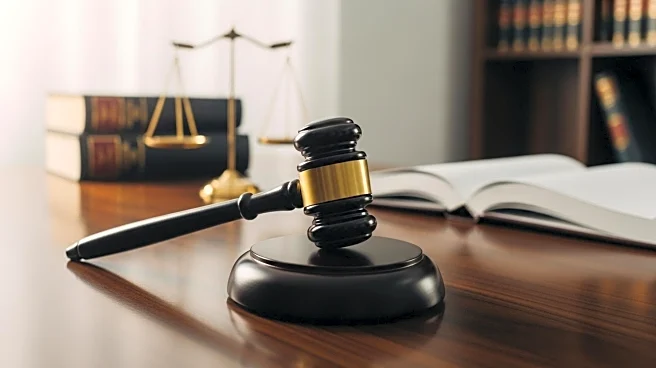What's Happening?
Midlevel associates at WilmerHale have expressed their gratitude for the firm's decision to challenge President Trump's executive orders. This sentiment was captured in the American Lawyer Midlevel Associates Survey, where associates highlighted their appreciation for WilmerHale's proactive stance. The firm chose to fight and successfully oppose these orders, contrasting with other firms referred to as the 'Notorious Nine,' which did not take similar action. The associates' comments reflect a broader appreciation for the firm's commitment to legal principles and its willingness to stand against executive actions perceived as controversial.
Why It's Important?
The associates' praise for WilmerHale underscores the significance of law firms taking a stand on political and legal issues. By opposing President Trump's executive orders, WilmerHale not only demonstrated its commitment to legal advocacy but also set a precedent for other firms. This action may influence the legal industry by encouraging firms to engage more actively in political and legal debates, potentially affecting public policy and corporate governance. The firm's stance could also impact its reputation, attracting clients and talent who value principled legal action.
What's Next?
WilmerHale's decision to challenge executive orders may lead to increased scrutiny and pressure from political entities and clients. Other law firms might follow suit, leading to a broader industry trend of legal advocacy against executive actions. This could result in more legal challenges to government policies, influencing the political landscape and public discourse. Additionally, WilmerHale may continue to engage in similar legal battles, reinforcing its position as a firm committed to challenging controversial policies.
Beyond the Headlines
The firm's actions highlight ethical considerations in the legal profession, emphasizing the role of law firms in upholding justice and legal integrity. WilmerHale's stance may inspire discussions on the ethical responsibilities of legal entities in political matters, potentially leading to a shift in how firms approach executive actions. This development could also influence cultural perceptions of law firms as defenders of legal principles, impacting their societal role and influence.









